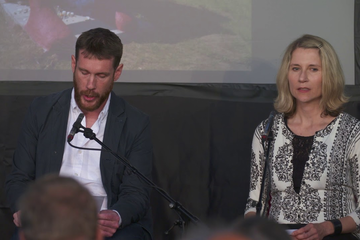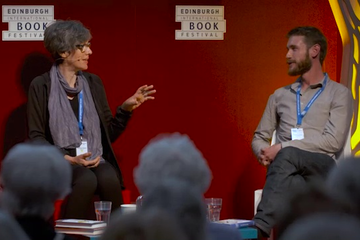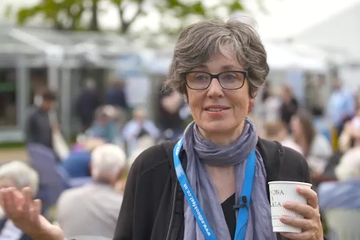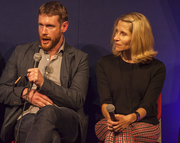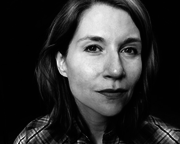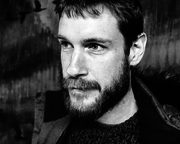More articles Tuesday 15 August 2017 9:45pm
Outriders Malachy Tallack and Jennifer Haigh Talk About their Journey Across America
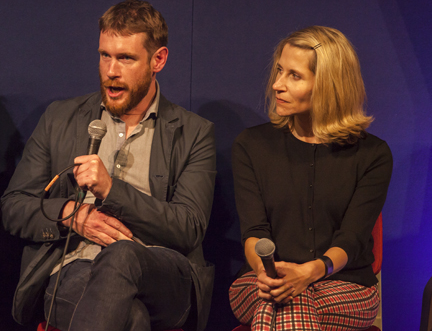
Boston novelist Jennifer Haigh says she feels like her country is “on fire” and that “we have not yet seen the worst reaction” to the removal of Confederate statues. “I feel like my country is on fire, and it’s not an accidental fire – it’s an act of arson,” she told a sell-out event at the Book Festival tonight. “There’s a lot of anger and I’m nervous about going back.”
“There’s a ‘free-speech’ demonstration in Boston, where I live, this Saturday,” added Haigh, “and ‘free-speech demonstration’ has become kind of coded language for white supremacists. I don’t know what Saturday has in store for the city of Boston.”
She was discussing her travels in the heartlands of Donald Trump’s America with the Scottish writer Malachy Tallack. Starting in Fargo, they visited the site of the Dakota Pipeline protests before travelling south through Tennessee and Mississippi to Louisiana. Their journey was part of the Book Festival's Outriders project, supported by the Scottish Government’s Edinburgh Festivals Expo Fund through Creative Scotland, sending five Scottish authors on five journeys across the Americas, accompanied by local writers. A new book, Outriders, is a new collection from the five Scottish writers and five from the Americas.
Under questioning, Haigh said she was “not feeling all that hopeful at the moment; it’s very hard to watch the news with anything resembling hope”.
Malachy Tallack also said he was politically “less optimistic” than ever before. “We all recognize the unpleasant direction things are taking,” he said, “people no longer talking to each other; people no longer listening to each other.”
He added: “I think there are comparisons you can draw. We certainly are seeing the same polarisation of views as you see in the US. Brexit is the obvious example where you have two halves of the country who cannot understand how the other half is thinking.”
And asked if he saw any parallels between the United States and Scotland, Tallack said he had recently been reading more about the American Civil War.
“There is a slightly uncomfortable parallel,” he said. “It is sometimes said that the conflict between the South and the North in the US is something that was partly taken over from this country. The South was populated much more by Celts – Scots and Irish – and the North by the English, and something about that conflict, about where power resides in the country, reminded me about issues that are going on in Scotland, issues about power between this country and England.
“I would not want to take that parallel too far – there are some very different things happening there – but it’s an idea that is swirling round.”
Tallack also said he now had a clearer idea of what form his next two books would take since returning to the UK from the US.
Look, Listen & Read
- 2026 Festival:
- 15-30 August
Latest News
 Major new partnership with Celtic Connections
Major new partnership with Celtic Connections

